By Sue Coletta
Another brave writer has shared his/her first page for critique. Enjoy! My notes will follow.
Traders Market
Blowing up a house with five people inside wasn’t the best way to slip out of town unnoticed.
Heart pounding, hands shaking, knowing she should be gone, Emelia Lopez watched through the stockade fence two houses down, mesmerized by the inferno. She pushed the other thought away when she heard the first sirens, and pushed herself into motion.
Keep to the plan, Nick said.
Staying in the deep shadows cast by the fire, she moved steadily down the alley, around a corner, merging into a crowd of gawkers spilling out of a bar.
“It had to be a gas explosion…”
“Was it a house?”
Another boom, another explosion.
“Holy shit! What is it?”
“Your wife blew up your boat. You better go home.”
Laughing, untouched by whatever it was, they began drifting back inside to get another round.
Emelia moved away, her lumpy figure in its baggy dress and sweatshirt unnoticed, one of hundreds like her in the neighborhood.
The second explosion?
Couldn’t think about it now.
A few blocks later, lights from the bus station beckoned. She pulled up her hood and grasped the key in her gloved hand. Inside, no one was paying any attention to the explosion. Too far away. Sirens were common. She put her head down and made herself shuffle to a locker, key ready. She pulled out a large duffle bag, closed the door, left the key in the lock, crossed the few feet into the restroom.
The biggest stall was open, the one with the changing table. Inside, she pulled the table down and began emptying the duffel.
Twenty minutes later, when she was sure she was alone, she came out, stuffed the refilled duffle into the trash can under the counter, slipped a carry-on bag over her shoulder, and checked herself in the mirrors. She smoothed her slim skirt and straightened the matching jacket, tested her ankles in the spike heels, and readjusted the red wig that completed her transformation into Emma Baxter, a Baltimore, Maryland wife and mother, who wouldn’t discover her passport was missing until long after it was discarded in a trash can in Amsterdam.
Emma straightened and strode purposefully out of the restroom, out of the bus station, and climbed into a waiting cab. Gave directions. Checked her phone. Nothing from Nick.
Follow the plan.
She closed her eyes, and the thought came.
Dear God. I’m a murderer.

This first page has so much promise. Anon did lose me a few times, though. So, let’s see if we can make things a bit clearer for the reader. Below is the first page with my notes.
Traders Market (I don’t have enough info. to comment on the title)
Blowing up a house with five people inside wasn’t the best way to slip out of town unnoticed. (Awesome first line!)
Heart pounding, hands shaking, knowing she should be gone, (one clause too many) Emelia Lopez watched (use a stronger verb here: peered, stared, gaped?) through the stockade fence two houses down, mesmerized by the inferno (Nice!). She pushed the other thought away when she heard the first sirens, and pushed herself into motion.
Any time you use words like thought, heard, saw, considered, etc., you’re telling the action rather than showing it. Rearrange the above sentence to avoid that.
Example: When the first siren squealed, a spike of adrenaline shot through Emelia and she shoved off the fencepost. Sprinting toward the bus station (added to show the reader a destination), Nick’s words echoed through her mind. Keep to the plan. Easy for him to say. He wasn’t the one out here in the dark (added to weave in some personality).
Keep to the plan, Nick said.
Staying in the deep shadows cast by the fire, she [Emelia] moved steadily down the alley, around a corner, merging into a crowd of gawkers spilling out of a bar. Very good. Don’t believe the advice that all gerunds are bad. They can be effective tools. Here, you’ve created emotional rhythm, which works for this particular reader.
“It had to be a gas explosion…” Who’s speaking? If it’s a bar patron, then please briefly describe the character so we can visualize the scene. Even something simple like: a bleach-blonde cougar in a leopard-print blouse.
“Was it a house?” Here, too.
Another boom, another explosion. Meh. It’s a little underwhelming, but it gets the job done. I’d rather see Emelia stop short when the earth shakes beneath her sensible shoes—in other words, show vs. tell.
“Holy shit! What is it?” I have no idea whose dialogue this is, either.
“Your wife blew up your boat. You better go home.” Here, too. Show us who this is.
Laughing, untouched by whatever it was, they began drifting back inside to get another round. Who are “they”? Show us! Also, since you’re not in their heads, you can’t know that they’re “untouched” by anything. You can show disinterest, but you cannot tell us they’re untouched. You also can’t know they’re going inside for another round. The protagonist can presume they are, but then you need to make that clear. For more on writing in deep POV, read this first page critique.
Emelia moved away (backed away? From what?), her lumpy figure in its baggy dress and sweatshirt unnoticed (Here again, you’ve slipped out of Emelia’s POV. Emelia wouldn’t think of herself of having a lumpy figure, would she? Most women would never use that term to describe themselves. By choosing Emelia’s POV, you, the writer, have effectively slipped inside her skin. You are Emelia while writing this scene). one of hundreds like her in the neighborhood.
On my second read-through I discovered that you might be referring to padding inside her disguise. If that’s true, then show us how itchy the material is or the padding lumping together. But you need to clue in your reader to what’s going on. Most readers won’t take the time to go back and reread the first page. See what I’m saying? Nailing an effective POV is one of the more difficult craft elements to master, but it’s crucial that you do. I’d be happy to answer any questions you may have.
The second explosion? Couldn’t think about it now. (Nice. I just moved her response up a line.)
A few blocks later, lights from the bus station beckoned (beckoned what? beckoned her closer?). She [Emelia] pulled up her hood and grasped the key in her gloved hand (key? Where’d it come from?). Inside, no one was paying any attention to the explosion (don’t tell us; show us. Inside the station five fat guys guzzling Budweisers huddled around a black-and-white television with a tinfoil antenna. Monday night football—perfect timing). Too far away (Maybe the explosion was too far away? Not sure how they missed the sirens, though they weren’t uncommon around here). Sirens were common. She put her head down and made herself shuffle to a locker, key ready (Head down, Emelia shuffled to a row of lockers, stacked two high).
Side note: show Emelia searching for the right locker number to drag out the suspense, show her excitement over finding the duffle bag (or her devastation when the locker’s empty), show her hand tremble as she drags the duffle bag off the metal shelf, careful not to make a sound. Or maybe the zipper scratches the metal and draws unwanted attention from a security guard. See all the ways to create conflict? The possibilities are endless. Don’t make things too easy for Emelia. Your protagonist needs to stumble, fall, get back up and move forward, stumble again…that’s how we humanize her into a flesh-and-blood character.
She pulled out a large duffle bag, closed the door, left the key in the lock, crossed the few feet into the restroom.
The biggest stall was open (that’s convenient; maybe too convenient? Something to think about.), the one with the changing table. Inside, she pulled the table down and began emptied the duffel.
Twenty minutes later, when she was sure she was alone (why is she certain she’s alone? Did she peek out a crack in the door? Did she press her ear to the door as footfalls trailed down the hall? Show us!), she came out, stuffed the refilled (refilled with what?) duffle into the trash can under the counter. [Emelia] slipped a carry-on bag (where did this come from?) over her shoulder, and checked herself in the mirrors. She smoothed her slim skirt and straightened the matching jacket, tested her ankles in the spike heels, and readjusted the red wig that completed her transformation into Emma Baxter, a Baltimore, Maryland wife and mother, who wouldn’t discover her passport was missing until long after it was discarded in a trash can in Amsterdam.
Okay, so, I assume the duffel bag contained all these items. Show us the action as it happens. Don’t make us guess after the fact. Why risk confusing your reader? You did a terrific job of showing us Emelia’s transformation—bravo on that!—so I know you can do it. Yes, it takes more time to show an action, but the payoff is well worth the added work. Every time we draw the reader deeper into the scene they become more invested in the story.
[With her head held high,] Emma straightened and strode purposefully out of the restroom [and slipped right past the drunken footballers who failed to notice her departure. Go Pats! (sorry, couldn’t resist ;-)) At the door to an awaiting cab Emelia hip-checked some business-type dude out of the way and stole his ride. Sucker.]
“Corner of Howser and Jewel Street.” She flashed a fan of bills over the front seat. “There’s an extra twenty in it for you if you get me there in ten minutes.” (Note: I added dialogue to show Emelia giving directions to the cabbie, rather than telling the reader about afterward.) out of the bus station, and climbed into a waiting cab. Gave directions.Checked her phone. Nothing from Nick
[Glancing at her phone, Nick still hadn’t texted.]
Follow the plan.
She closed her eyes, and the thought came. Dear God, I’m a murderer. (This makes me want to flip the page to find out what happens next. Nicely done!)
Brave Writer, I hope I wasn’t too hard on you. If I didn’t see so much promise in this first page, I might be reluctant to bathe your opener in red ink. I want you to succeed, and I know you can. With a little more knuckle grease, this opener could be amazing.
One other thing is worth mentioning. Be careful with run-on sentences. Same goes for staccato sentences. They’re most effective when used sparingly. If used too often, they become a writing tic. 🙂
Over to you, my beloved TKZers. How might you improve this first page?
 As many of you know, I live in northern New Hampshire, where trees burst with color in the fall. It’s impossible to be down, upset, or melancholy when you’re surrounded by such beauty.
As many of you know, I live in northern New Hampshire, where trees burst with color in the fall. It’s impossible to be down, upset, or melancholy when you’re surrounded by such beauty.


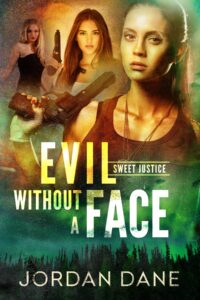
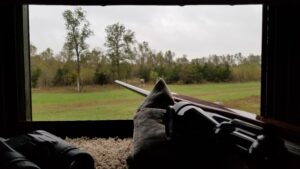
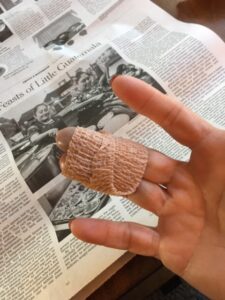


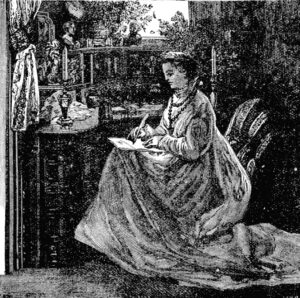
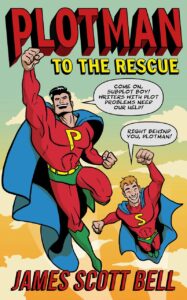


 Pick one or answer them all — your call!
Pick one or answer them all — your call!